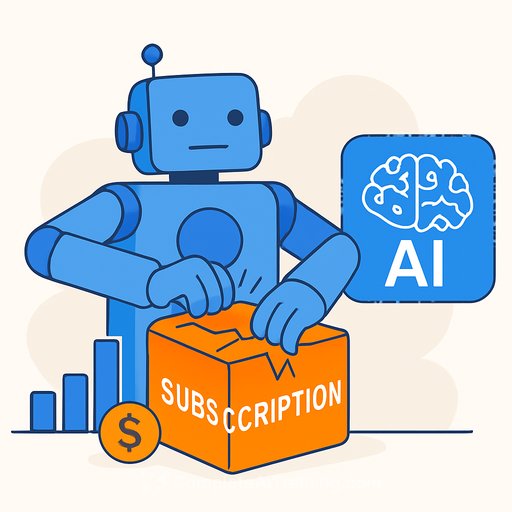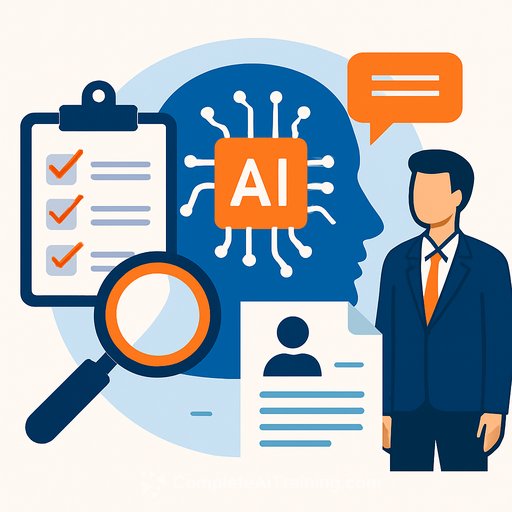Dayforce's Deal Drama Exposes AI Growing Pains - Here's What HR Leaders Should Do
Thoma Bravo agreed to take Dayforce private for $12.3 billion at $70 per share - a 32% premium to pre-deal chatter. T. Rowe Price, which owns about 15.5%, called the offer underwhelming and plans to vote against it, arguing the price leans on short-term pessimism in software.
The backdrop: AI is rewriting how software gets priced and valued. Usage-based models popularized by firms like OpenAI are cooling enthusiasm for older, per-seat subscriptions. Shifting to AI-driven products and pricing is hard, and many public names have paid for it with lower multiples.
Why this matters to HR
- Pricing is changing. Expect usage-based add-ons (per task, token, or event) layered on top of existing HCM subscriptions. Budgeting will get trickier.
- Cash is king again. Dayforce targets $1 billion in free cash flow by 2031 (from $172 million in 2024). Vendors will prioritize products and contracts that improve cash generation.
- AI features will ship fast, but quality will vary. Your team needs a filter for what's real, what's priced fairly, and what actually improves outcomes like time-to-fill, accuracy, and compliance.
- Consolidation risk is real. Going private lets vendors retool out of the spotlight - but it can also mean aggressive repricing or product line shifts.
The valuation logic in plain terms
Take the 2031 free cash flow goal of $1 billion and put a 19x multiple on it (roughly where Workday trades). Discount it back six years at an 8.6% weighted average cost of capital. You land near today's deal value. That math explains why some investors take the money now, while others want to wait for the AI payoff.
Procurement moves to make this quarter
- Model usage scenarios. Estimate AI feature consumption by recruiter, workflow, or pay period. Set thresholds and caps before pilots begin.
- Lock in price protections. Negotiate guardrails on usage-based fees, annual uplift limits, and the right to revert or pause AI add-ons.
- Demand measurable outcomes. Tie renewals to time-to-fill, quality of hire, compliance accuracy, and agent/recruiter productivity - not feature lists.
- Stage adoption. Start with one or two high-leverage workflows (screening, scheduling, knowledge retrieval), then expand.
- Secure exit options. Add termination-for-convenience clauses and data portability commitments if strategy or pricing changes post-privatization.
Due diligence checklist for AI in HR software
- Data use: What employee data is used to train or fine-tune models? How is PII protected? Is data isolated per tenant?
- Cost predictability: Clear unit pricing, throttles, caps, and visibility into consumption metrics.
- Model approach: First-party vs. third-party models; upgrade cadence; impact on accuracy and bias controls.
- Compliance: Documented testing for bias, explainability, audit trails, and region-specific privacy obligations.
- Quality controls: Human-in-the-loop steps for high-risk actions (offers, terminations, pay changes).
- SLAs and incidents: Response times, rollback procedures, and breach/bug handling for AI outputs.
- Integration: How AI features work across ATS, payroll, time, and analytics without duplicating data.
Signals to watch in Dayforce and peers
- Adoption of AI add-ons and attach rates across modules.
- Gross margin and free cash flow trends versus guidance.
- Net revenue retention and churn as pricing models evolve.
- Shifts on pricing pages or contract terms (caps, tiers, overages).
- Partnerships with model providers and the pace of model upgrades.
- More privatizations or roll-ups in HR tech.
Bottom line: AI is putting pressure on older pricing and product assumptions. Your edge is contract discipline, measurable outcomes, and a clear view of how usage translates to value in HR workflows.
Context: T. Rowe Price said in an Oct. 8 filing it will vote against the Dayforce deal, arguing the offer undervalues the company during a period of sector pessimism. For background on usage-based pricing in AI, see OpenAI's published pricing.
Want a faster way to upskill your HR team on AI choices?
Browse AI courses by job to build practical skills for budgeting, procurement, and rollout without guesswork.
Your membership also unlocks:






